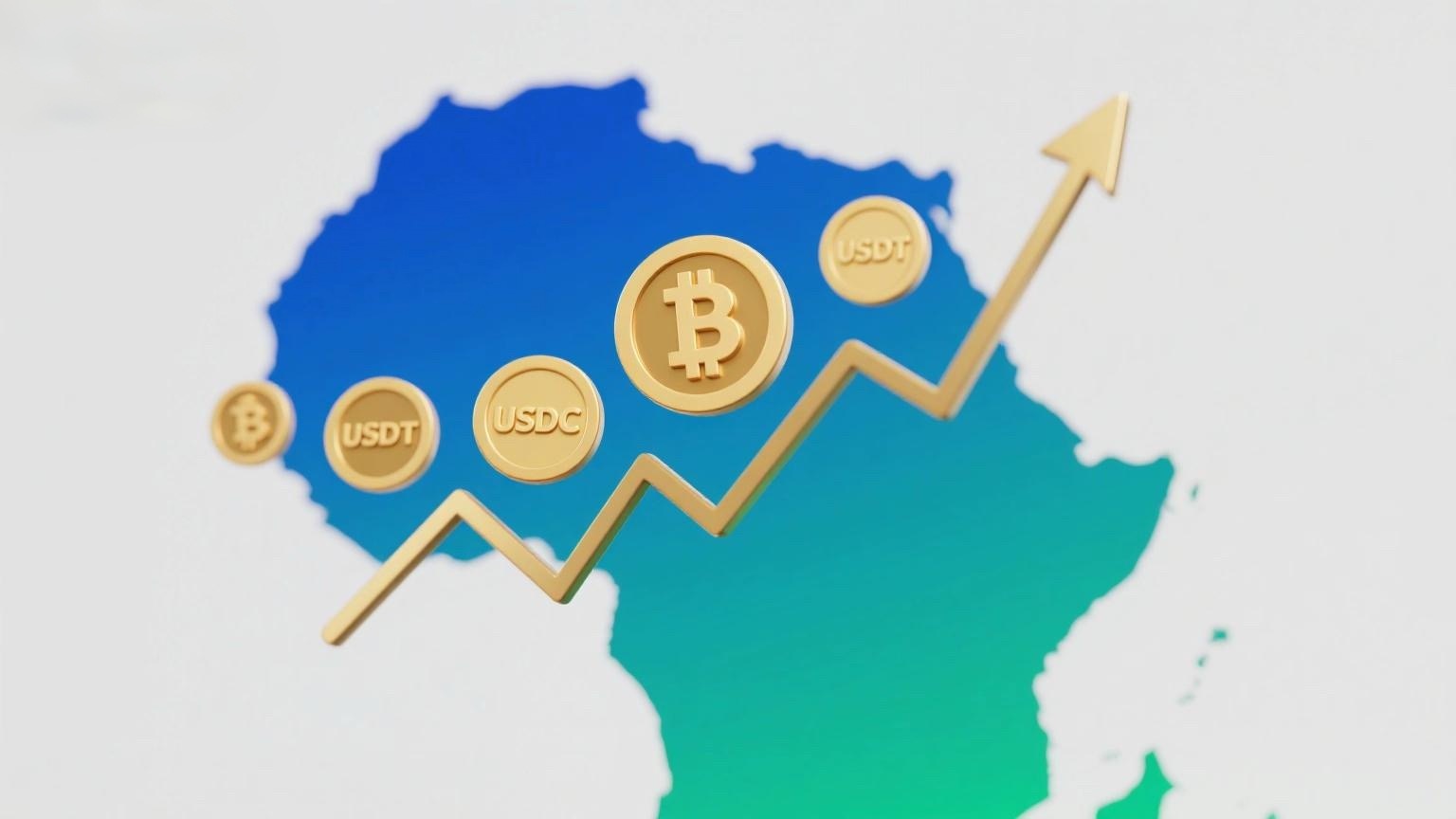
Similar to other regions globally, Africa's stablecoin market has matured, surpassing Bitcoin as the preferred asset for daily transactions. Except for North America (where stablecoin trading volume is only slightly higher than Bitcoin), stablecoin trading volumes in all other regions exceed twice that of Bitcoin.
In Africa, high inflation and currency depreciation have eroded people's wealth, making stablecoins a hedge against local currency instability and providing a more reliable means for transactions and value preservation.
Foreign exchange volatility drove retail and small-to-medium stablecoin transfers to account for up to 43% of all crypto transactions last year.
Currently, the growth of stablecoins in Africa is primarily driven by small transfers under $1 million—i.e., retail and non-institutional transfers. Sub-Saharan Africa (SSA) is the fastest-growing region for both retail and professional stablecoin transfers, with annual growth rates exceeding 40%. Last year, stablecoins accounted for 43% of all cryptocurrency transaction volumes in Sub-Saharan Africa.
Rising Adoption of Stablecoins in Africa
Although Nigeria and South Africa lead in stablecoin adoption, countries like Ethiopia, Zambia, Mauritius, Kenya, and Ghana are also rapidly increasing their stablecoin usage.
Ethiopia and Zambia both saw annual stablecoin growth rates exceeding 100% over the past year. Ethiopia emerged as the fastest-growing market for retail stablecoin transfers, with an annual growth rate of 180%. The Ethiopian Birr (ETB) depreciated by 30% in July after the government loosened currency controls to secure $10.7 billion in loans from the IMF and World Bank. This currency loss is expected to further drive demand for stablecoins. In Nigeria, crypto activity is mainly driven by small retail and professional transactions, with about 85% of received amounts below $1 million. Nigeria accounts for over $20 billion in stablecoin inflows in Sub-Saharan Africa, representing more than 40% of the total.
Meanwhile, alongside the growing prominence of stablecoins, decentralized finance (DeFi) is also having a significant moment in Nigeria, aligning with Sub-Saharan Africa's macro trend of leading global DeFi adoption rates.
The Role of Stablecoins in Mitigating Crypto Price Volatility
Stablecoins play a critical role in the crypto ecosystem by addressing its most challenging issue—price volatility. Crypto tokens like Bitcoin and Ethereum can experience sharp fluctuations in short periods, making them unsuitable as mediums for daily transactions or reliable stores of value.
According to S&P Global Ratings, in over-the-counter (OTC) settlement processes, stablecoins enable near-instant final settlement within minutes, compared to traditional methods that often take days; slippage is minimal (typically below 1%, significantly better than the 5–10% fees for forex transactions); and the immutable records on the blockchain enhance transparency and compliance for KYC/AML. As a programmable, 24/7 "dollar rail," stablecoins allow African businesses, fintech companies, and telecom-financial ecosystem partners to expand cross-border payment corridors without building new banking infrastructure.
Relevant Data
Although Sub-Saharan Africa (SSA) accounts for a small share of global crypto transaction volume, multiple indicators suggest promising prospects for the region in the cryptocurrency space.
YouGov 2024 Survey Data:
-
93% of global respondents said they had heard of cryptocurrencies, with 51% claiming to "know something" about crypto.
-
Sub-Saharan Africa (SSA) accounts for just 2.7% of global transaction volume.
-
Nigeria received approximately $59 billion in cryptocurrency in 2024, ranking second in the global crypto adoption index (after India).
-
African respondents showed an 87% "willingness to invest in crypto in the future," higher than other global regions.
-
In terms of "understanding of crypto," Nigeria (77%), South Africa (65%), South Korea (61%), and India (60%) ranked highest.
-
For "currently or previously holding crypto assets," Nigeria (73%), South Africa (68%), the Philippines (54%), Vietnam (54%), and India (52%) all exceeded 50%.
Chainalysis 2024 Global Crypto Geography Report:
-
Sub-Saharan Africa (SSA) still accounts for the smallest share of global transaction volume at 2.7%.
-
Stablecoins now represent about 43% of the region's total transaction volume.
-
Nigeria received approximately $59 billion in cryptocurrency in 2024, ranking second in the global adoption index.
















